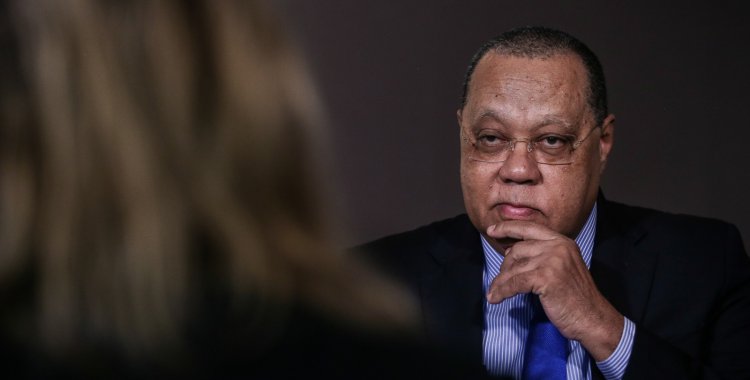In January of this year, the Attorney General of the Republic, Hélder Pitta Grós, admitted in an interview to Lusa that the criminal investigation of former Vice President Manuel Vicente would not progress as long as he had the right to immunity, five years after the end of his term. .
“Both the ex-vice president and ex-president [José Eduardo dos Santos] are protected by a law that grants five years in which they will not be able to answer for the acts performed and, therefore, we will wait for the five years to elapse so that we can to learn whether justice is under Manuel Manuel's orders and in what terms, ”said Hélder Pitta Grós.
Asked about the immunities granted to Angolan former and former vice presidents in matters of criminal proceedings, Rui Verde told Lusa that in his opinion the PGR is misinterpreting the Constitution.
"The five years would only count if you wanted to file a lawsuit when he [Manuel Vicente] was vice president", which is not the case with the allegations that have been reported in the press.
The name of the former president of Sonangol, which was investigated in Portugal, appears linked to the company CIF (China International Fund) and the diversion of millions of dollars from the oil company.
According to Rui Verde, the immunity that is established in article 127 of the Constitution of the Republic of Angola (criminal liability) applies only to crimes committed in the exercise of functions.
“At the moment, we are not talking about president and vice-president, but ex-president [José Eduardo dos Santos] and ex-president [Manuel Vicente] and this article 127 does not apply there. I think there has been some confusion in this regard, ”said the lawyer and law professor.
For Rui Verde, article 133 (statute of former presidents) “which does not refer to five years” must be applied, according to which former presidents of the Republic enjoy the immunities provided for in the Constitution for members of the Council of the Republic, identical to of deputies.
“At this moment, whether in the case of Manuel Vicente, or in other cases that may include former presidents of the Republic of Angola, since they are not currently in the exercise of their functions, Article 127 does not apply, but if the articles referring to the immunities of the deputies that do not prevent them from being applied or initiate criminal proceedings, they only require authorization from the National Assembly for the process to proceed after the referral order ”, he explained.
The pronunciation phase corresponds to the decision to proceed with the trial process because there is sufficient evidence of the commission of crimes.
As for generals Leopoldino Fragoso do Nascimento “Dino” and Helder Vieira Dias “Kopelipa”, already heard by the judicial authorities, “only the question of immunities in the face of imprisonment outside the flagrante delicto arises, since the status of general officers does not allow arrested at this stage, although enforcement measures may be enacted ".
Rui Verde also questioned the way assets are being recovered: “I think a problem is being created because it is not very clear how these assets are being recovered. As a general rule, assets are only recovered at the end of a judicial process, the person is charged and, at the end of the process, if convicted, he can be without his assets, what he obtained as a result of the crime. Until then, there may be a provisional seizure, but never a definitive one ”.
Currently, several lawsuits are underway in which defendants linked to the former president were constituted, such as generals “Kopelipa” and “Dino”, as well as the daughter of José Eduardo dos Santos, businesswoman Isabel dos Santos.
Last week, the PGR announced the return to the state of goods and companies that were in the possession of the generals. Isabel dos Santos, on the other hand, saw a large part of her assets, accounts and stakes in companies in Angola and Portugal being subject to arrest.
“The case of Isabel dos Santos is following what we can call the normal procedures. If, at the end of the process, you win, the goods are returned, if you lose, you run out of things ”, commented Rui Verde.
In the cases of Manuel Rabelais (ex-Minister of Communication of José Eduardo dos Santos who handed over his media group to the State), “Dino” and “Kopelipa”, “apparently, what has happened is that they, of free willingly, deliver the goods immediately to the State, but are not delivering them in the context of any process ", he said.
"It is not clear if they are making a donation, if they are paying a debt, that is not clear, nor do I know what law is being applied”, questioned the academic.
Rui Verde defended, therefore, a legal framework and more explanations on these matters, since it is concerned companies whose situation is unknown.
"We do not know if they are profitable or if they are causing losses, in some cases the State may be receiving losses and not profits", stressing that "what appears to be a victory may be a defeat".
The Attorney General's Office (PGR) announced last week that several generals' assets had been handed over to the National Asset Recovery Service, including beer and cement factories, a supermarket chain and more than 1,000 housing buildings that " they become, definitively, the patrimonial sphere of the State ".







